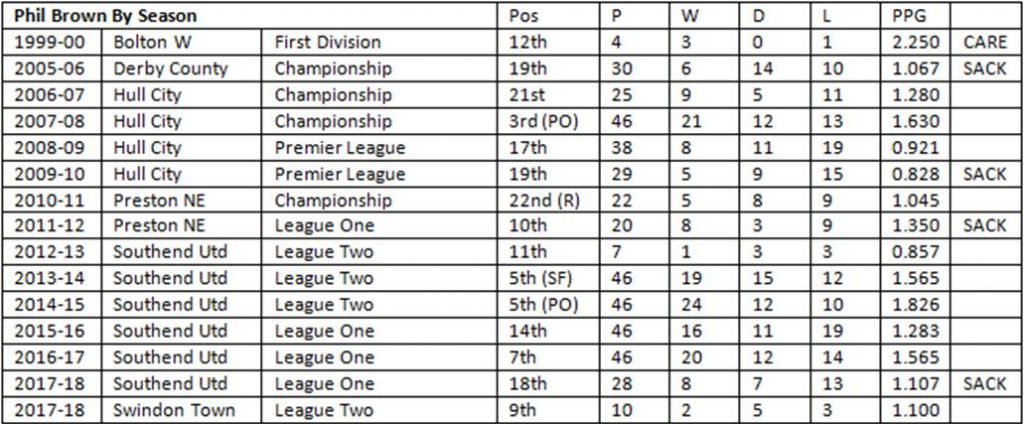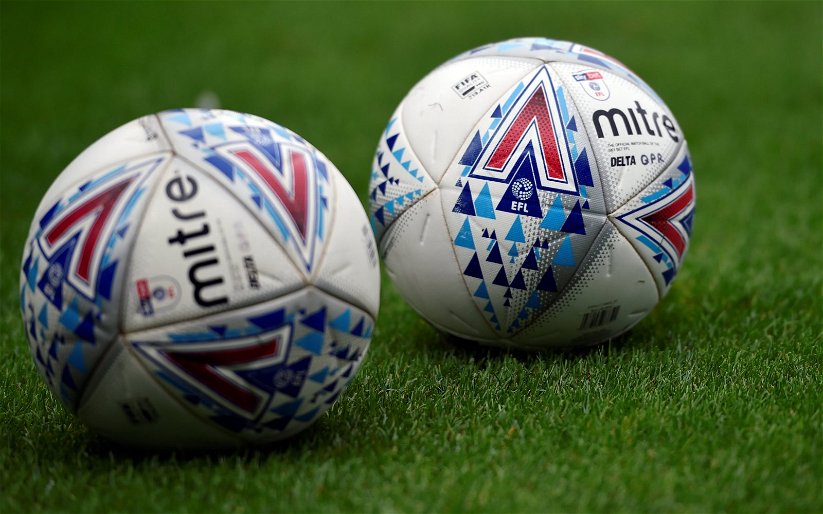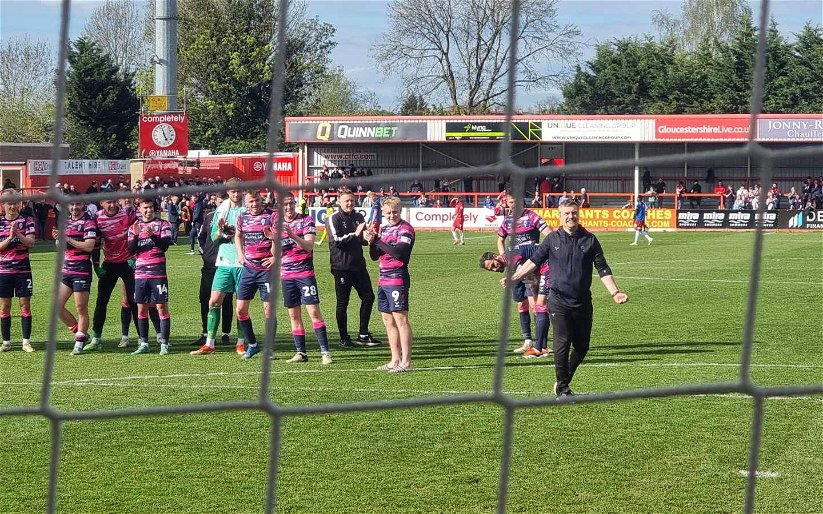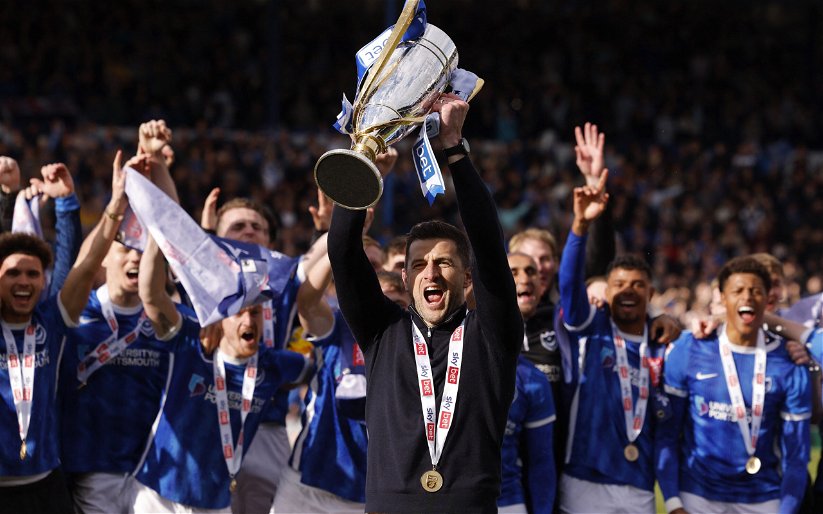Bolton got off to another poor start in 2003-04 with only one win in the opening ten games, but form improved dramatically to see them finish eighth, their highest league placing since 1960. They also reached the Carling (League) Cup Final where they were beaten 2-1 by Middlesbrough in Cardiff. Things got even better in 2004-05 with a sixth-place finish ensuring qualification for the UEFA Cup, the first time Bolton had ever qualified for European competition.
In a conversation with Bolton chairman Phil Gartside, Brown had been told he would not be appointed manager unless he cut his managerial teeth elsewhere first, so Brown began to look for a suitable post. That opportunity came at Derby County in June 2005. Derby had just missed promotion back to the Premier League with a play-off semi-final defeat to Preston, and hopes were high for a successful campaign. After a good start of two wins and two draws, Derby embarked on a run of one win in fifteen games. Despite improved form through December, too many draws left Derby in the bottom six of the Championship. After a 6-1 defeat at Coventry and a 3-1 defeat to Colchester in the FA Cup, Brown was sacked on 30 January 2006 after just seven months in the job.
His next job came at Championship strugglers Hull City in October 2006 where he was appointed first team coach under Phil Parkinson. Six weeks later Parkinson was sacked, and Brown took over as caretaker manager with Colin Murphy. Three wins from their first five league games took Hull out of the bottom four, and Brown was appointed until the end of the season. Hull continued to struggle, but a 1-0 win at Cardiff at the end of April ensured survival. Hull got off to a slow start in 2007-08 and sat seventeenth in mid-October. Hull then embarked on a great run that saw them finish fourth, just four points off automatic promotion. Watford were dispatched 6-1 in the semi-final, and incredibly Hull reached the Premier League for the first time in their history with a 1-0 Wembley win over Bristol City.
Brown was handed a three-year contract and set about the unlikely task of keeping Hull in the top flight. After nine games, Hull had a record number of points for a side promoted to the Premier League and Brown was named Manager of the Month for September 2008. They were sitting third in the table, only off the top on goal difference, but that was as good as it got. Controversy was never far away as Hull slid down the table. A series of FA charges brought Brown into the spotlight for the wrong reasons, and he again made headlines on Boxing Day when he conducted his half-time team talk on the pitch at Manchester City with his side 4-0 down. A run of just two wins in twenty-eight games left Hull in danger of relegation going into the final game of the season, at home to champions Manchester United. Middlesbrough, Newcastle, Hull and Sunderland could all still occupy the final two relegation spots with West Brom; as it happened, all four lost and Newcastle were relegated with Middlesbrough. Brown celebrated by ‘singing’ a mangled version of Sloop John B on the pitch at the end of the game.
The 2009-10 season was a struggle from the word go, and Brown was placed on garden leave on 15 March 2010 after a run of four straight defeats had left Hull second from bottom. His departure was confirmed on 7 June after Hull had been relegated.
He was not out of the game for long, appointed manager of the Championship’s bottom club Preston North End on an eighteen-month contract on 6 January 2011. Things were very slow to pick up and, despite three successive wins in March, North End never looked likely to escape the drop. A 1-0 home defeat to Cardiff on 25 April sent them down to League One. Preston got off to a great start in 2011-12 with seven successive wins leaving them second in the table at the end of September. Preston then lost eight of the next nine games to dump them into the bottom half. Despite a win and a draw from the next two games, Brown was sacked on 14 December 2011.
Brown filled a lengthy spell out of the game with a series of media commitments, appearing on a number of television and radio channels as a pundit and commentator. In November 2012 he was set to be named manager at former club Hartlepool before the appointment broke down over the cost of the backroom team Brown wanted to bring in. On 25 March 2013 he was appointed manager at League Two Southend United on a two-year contract. One of his first jobs was to take Southend to Wembley for the Johnstone’s Paint Trophy Final, which they had reached under previous manager Paul Sturrock. Southend lost 2-0 to Crewe, and Brown went on to win just one of his eight league games to see his side finish in eleventh place. The playoffs were reached with a fifth-place finish in 2013-14, but Southend were beaten 3-2 on aggregate by Burton Albion in the semi-finals. At the end of the season, Brown was linked with a return to Bolton as manager, but the move did not materialise.
Southend challenged for automatic promotion in 2014-15, and a run of seven successive wins took them into the final day needing a win at Morecambe to take third place. They lost 3-1 while Bury won 1-0 at Tranmere to leapfrog Southend into the final promotion place. The disappointment was not to last long, a 4-2 aggregate win over Stevenage taking them back to Wembley where promotion was secured with a 7-6 penalty shootout win over Wycombe. Consolidation was the name of the game in 2015-16 with a fourteenth-place finish. During the summer of 2016, Brown was again linked with a return to Bolton and also with England after former mentor Sam Allardyce was appointed manager, but again nothing happened towards either role.
Another promotion challenge followed at Roots Hall in 2016-17, but two defeats from their final three games saw Southend just miss the playoffs by a point. Great things were therefore expected in 2017-18, but Southend never got going. After a run of seven defeats from eight games had left the side just two points above the relegation zone, Brown was placed on garden leave on 17 January 2018. On 12 March 2018 he was named manager of League Two side Swindon until the end of the season. The intention was to revive Swindon’s promotion challenge, having slipped to ninth with ten games remaining. The revival never materialised, with Brown winning just two of those ten games to leave Swindon seven points behind the play-off spots. Despite the disappointment, he was named manager on a two-year deal on 10 May 2018.
In a roller coaster forty-year career as a player, coach, assistant manager and manager, Phil Brown has qualified for Europe, won promotion from the fourth tier, won promotion from the third tier, won promotion from the second tier (five promotions in total), been to a League Cup Final, three major cup semi-finals, two Football League Trophy finals (won one), been involved in nine playoff campaigns, five play-off finals (three wins), has been relegated once, and was subject to two bids for re-election. It would be true to say he has seen the good times and the bad times at both ends of the Football League.
If experience equated to success, Phil Brown would be managing France. All of which makes it extremely likely that Swindon will not be in League Two for very long. Whether their stay ends this season or not is another question.

Key:
P = Promoted; R = Relegated; SF = Lost in play-off semi-final; F = Lost in play-off final; PO = Won play-off final; D = Demoted.
Figures are league games only; cup matches and playoffs are not included.
League position shown is either the position at the end of the season or the position at the time of departure.

Writer: Scotimp
Who Are The League Two Managers? No.21: Phil Brown (@Official_STFC):https://t.co/EbFo6z1hmO#Swindon #STFC #EFL
— Vital Lincoln City (@VitalLincoln) July 31, 2018
https://www.facebook.com/VitalLincolnCity/posts/1789073267795577


